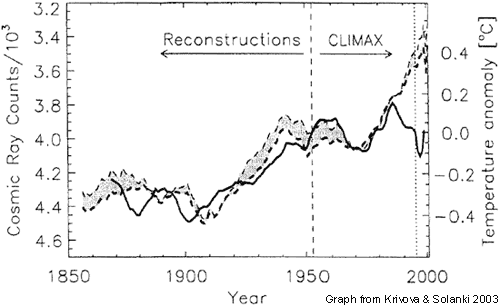oh-oh! a new paper shows clouds cause cooling not warming. will Trenberth call for the head of another journal editor? hahaha.
how many lances have to go in before the bull of settled science goes down for the count? its already haemorraging badly and the recent exaggerations and follies like the Times-Atlas and NASA's vengeful aliens arent helping CAGW either.
Im on my phone so you'll have to get the abstract (or whole paper) from WUWT.
how many lances have to go in before the bull of settled science goes down for the count? its already haemorraging badly and the recent exaggerations and follies like the Times-Atlas and NASA's vengeful aliens arent helping CAGW either.
Im on my phone so you'll have to get the abstract (or whole paper) from WUWT.



